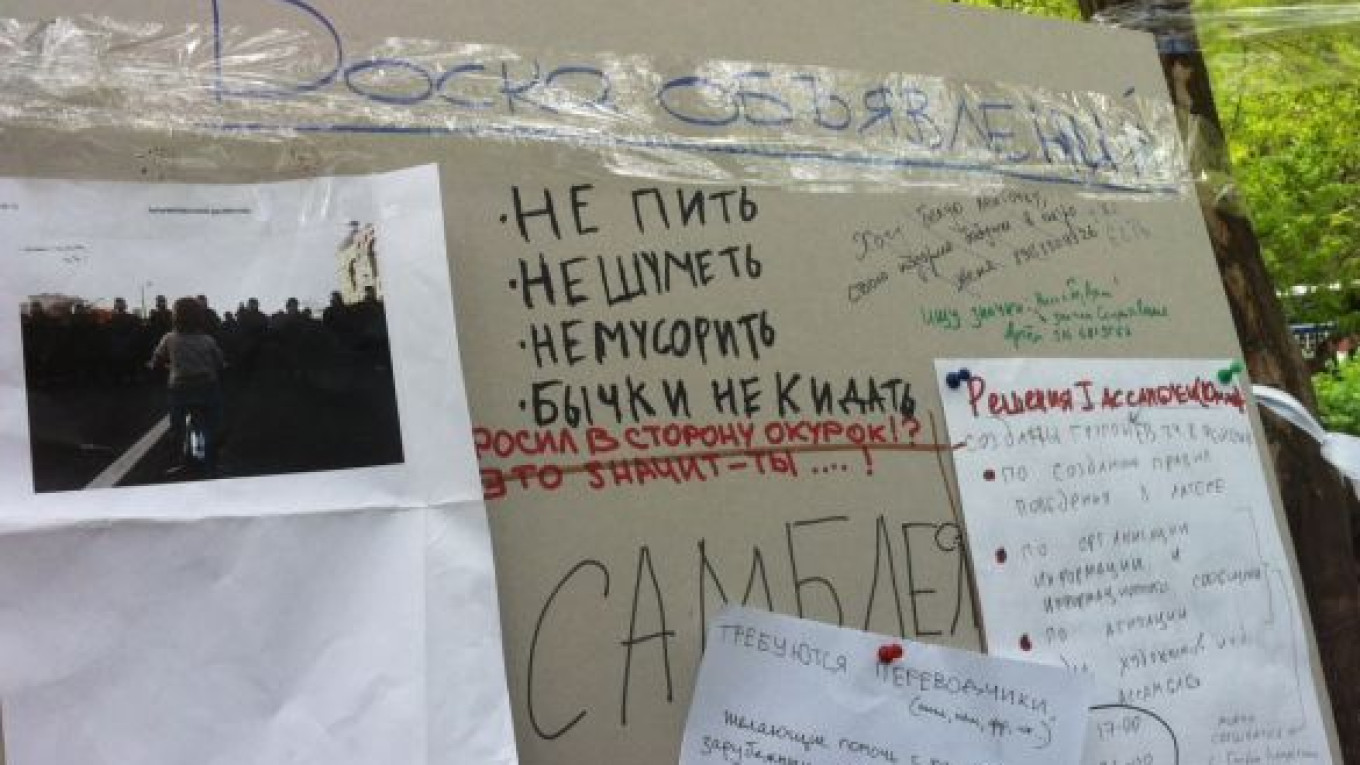Protesters have stuck out another night in a mobile camp at Chistiye Prudy, where they fought off an attempt to leave them without toilets and began settling into normal routines of exercise and cleaning, despite authorities stating they would clear the camp.
The number of protesters swelled to about 2,000 overnight at the camp, where participants spread out sleeping pads, Vedomosti reported.
At one point authorities sought to flush protesters from the area by removing portable toilets.
"I think authorities decided waste us in the outhouse. The owner said he had been pressured and took away the toilets," socialite and opposition figure Kseniya Sobchak wrote in Twitter. "I never thought I would get sucked into politics in the toilet business," she quoted the owner of the toilets as saying.
But organizers were able to quickly organize new toilets from another company.
"The authorities are funny: they removed the toilets to kick us out of Chistiye Prudy. However, we were able to solve the problem quickly: after an hour they brought new ones," Solidarity opposition group co-leader Ilya Yashin said in Twitter.
At least 150 protesters made it through the entire night with sandwiches, tea and coffee, waking up to morning exercises and a clean-up of the territory, Interfax reported. A bulletin board with notices and schedules for chores was also erected, and protesters passed the night with songs and power provided by a portable generator, Vedomosti reported.
A Novaya Gazeta correspondent reported that a few police officers joined demonstrators in eating sandwiches at one point in the night.
President Vladimir Putin's spokesman Dmitry Peskov on Friday called the camp illegal and said police forces would be used to clear protesters. He had said earlier in the week that police officers hitting, kicking, and striking demonstrators with batons at Sunday's March of a Million protest should have been rougher.
Opposition organizers have been gathering protesters to Chistiye Prudy with calls to "Occupy Abai," a reference to the statue of Kazakh poet and cultural figure Abai Kunanbayev near which protesters have settled.
A Message from The Moscow Times:
Dear readers,
We are facing unprecedented challenges. Russia's Prosecutor General's Office has designated The Moscow Times as an "undesirable" organization, criminalizing our work and putting our staff at risk of prosecution. This follows our earlier unjust labeling as a "foreign agent."
These actions are direct attempts to silence independent journalism in Russia. The authorities claim our work "discredits the decisions of the Russian leadership." We see things differently: we strive to provide accurate, unbiased reporting on Russia.
We, the journalists of The Moscow Times, refuse to be silenced. But to continue our work, we need your help.
Your support, no matter how small, makes a world of difference. If you can, please support us monthly starting from just $2. It's quick to set up, and every contribution makes a significant impact.
By supporting The Moscow Times, you're defending open, independent journalism in the face of repression. Thank you for standing with us.
Remind me later.


